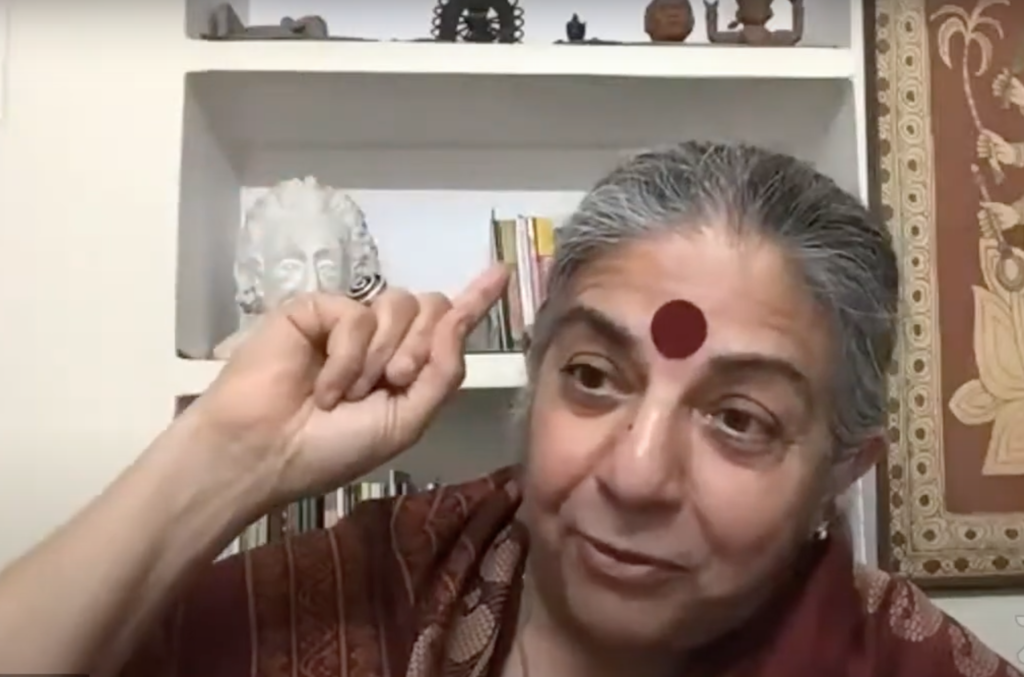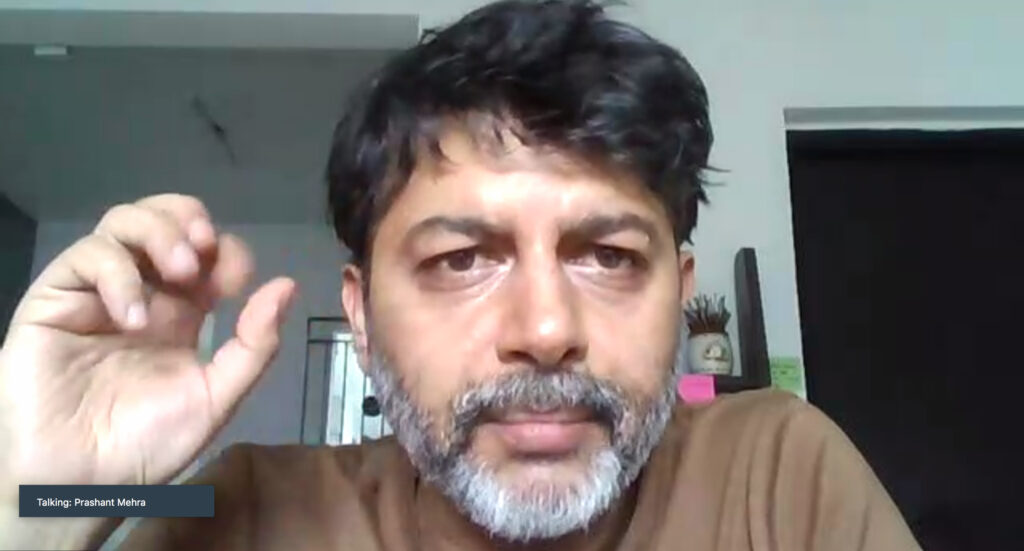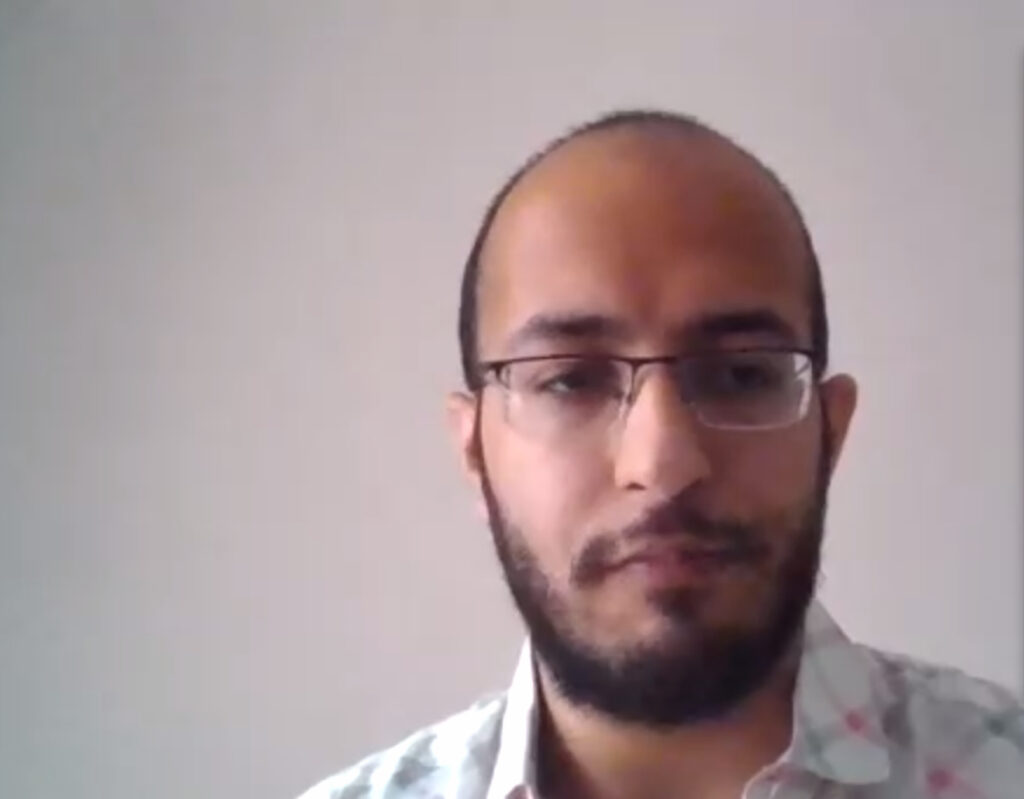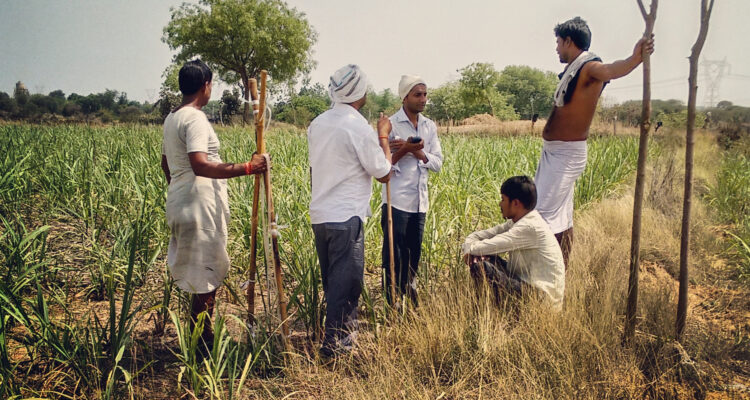Digitisation of agriculture can benefit farmers and enhance their income.
But done wrong, it could lead to disastrous, long lasting and crippling consequences for India’s farming community.
◊ By Nitya Kaushik
The Union Agriculture Ministry has launched a pilot project, along with tech giant Microsoft India, to verify and develop a farmers’ database in 100 villages in 6 Indian states.
This project has been touted as a step forward in the Centre’s ambition to digitise agriculture and subsequently set up AgriStack, a digital database of farmers and the agriculture sector.
Over the past few years, India has pushed for the use of modern technology in agriculture to benefit farmers and enhance their income.
However, in the apparent absence of a well-thought-out policy or legal framework with regard to digitisation in the sector, concerns abound among experts who work with farmers, as well as, those in the tech industry.
The concerns include fair and transparent use of data, privacy issues, consultations with farmers, financial disclosures, etc.
A recent webinar co-hosted by ASHA (Alliance for Sustainable and Holistic Agriculture) and the Internet Freedom Foundation, ‘Understanding the Government’s Digital Push in Agriculture’, brought together prominent farmers’ rights advocates and information technology experts to brainstorm over critical challenges facing the agriculture sector due to impending digitisation.
“What do farmers really want from digitisation?” and “How can it benefit them?” were among the key issues discussed.
DIGITAL DATABANKS CAN BE USED TO TAKE ADVANTAGE OF FARMERS
Infotech experts point out that digital databases can be misused to take advantage of farmers. Rohin Garg, Associate Policy Counsel, Internet Freedom Foundation, said that in a similar project in Australia, the government there learnt that banks and credit companies used the databases to learn more about the lands than the farmers themselves.
IT experts describe AgriStack as a collection of technologies and digital databases proposed by the central government to collect information on India’s farmers and the agricultural sector. The government says these databases aim to tackle issues such as poor access to credit and wastage in the agricultural supply chain.
The government envisions unique digital IDs for farmers, which will be linked to their Aadhaar card numbers. Data collected by AgriStack could include personal details (family, bank details, etc), profile of land held (measure, fertility, etc), production details (sowing details, crop quality, etc), and financial details (loans, credit rates, etc).

“Digitisation is data lagaan, and we must start talking about it as an extortion system. Reality is, big tech has already decided on the land grab.” -DR VANDANA SHIVA, Food Sovereignty Advocate & Founder, Navdanya
Garg said, “First, there has been zero consultation with the farmers so far. Secondly, an algorithmic decision-making is being pushed, but when you allow this, you also need algorithmic accountability and transparency, which is missing. The legal implications are not clear. Finally, the huge amount of data that this project is going to collect can lead to massive exploitation of farmers, using their own data against them, along with erosion of their privacy.”
Garg added, “Information asymmetry will enable microfinance and fintech to charge usurious rates from farmers.” He calls this ‘Tech Solutionism’ – tech being blindly used to solve societal issues without considering the implications.
He also flags the perils of exclusion that farmers might face due to the issuance of one more card-supported ID a la Aadhar. He fears digitisation without a data protection bill, which could offer base-level safeguards to protect people against exploitation of data.

“Farmers and FPOs should proactively propose the kind of use cases they want the government to build on agristack.” – PRASHANT MEHRA, Co Founder, Platform Commons Foundation
FARMERS SHOULD PROPOSE USE CASES THAT BENEFIT THEM
While many may argue that digitisation of agriculture is inevitable, considering the influx of technology in every sector today, Prashant Mehra, Co Founder, Platform Commons Foundation, throws light on what could be done to ensure that it helps improve farmers’ lives and livelihoods.
“Tech can’t serve anybody on its own, but policy can,” Mehra said at the webinar. He explained that AgriStack is simply stacks of data (bricks) that can be used to build a structure. “The point is, what are the ‘use cases’ we build with the stacks and who will they benefit?”

“The huge amount of data that will be collected can lead to massive exploitation of farmers—using their own data against them, along with erosion of their privacy.” – ROHIN GARG, Associate Policy Counsel, Internet Freedom Foundation
Mehra further pointed out that regardless of the government’s plan, the farmers should propose the ‘use cases’ they would want to build. “Typically, whoever gets the first right to make a move is often linked to who can watch whom. Instead of the corporate watching the farmer, can the farmer watch the corporate? This would enable them to make the first move,” he explained.
Mehra highlights the issue of data monetisation, where the entity holding the aggregate data often benefits the most. He indicates that if farmers hold this aggregate data on buyers and businesses, they will be able to make better decisions for themselves.
Mehra said alternative scenarios could be for the government to not share data with anyone, but instead use it to track real-time risks and instruct the sector accordingly, or inform farmers of what the buyers are buying for the former’s benefit.
“For us, the important question today is, who will the government, which is sitting on top of the stack (AgriStack), want to build the ‘use cases’ with, and what conditions will it create. Appropriate data governance and use-case boundaries need to be set,” he elaborated.
Mehra said the government must be informed that data boundaries, use-case boundaries, data transfer rules and other mechanisms are needed to ensure that digitisation truly and equitably benefits the entire farming community, including various land holders, small farmers, tribal populations, landless farmers and female farmers.
DIGITISATION CAN LEAD TO LAND GRABS BY CORPORATES
Speaking in her firebrand style, Dr Vandan Shiva, Food Sovereignty Advocate and Founder, Navdanya, opened the discussion by saying digitisation is not about IT but “land grab”.
“This issue is about Mother Earth. We have fought for India to be a land of small farmers since colonialism, and through the ’90s. Whenever farmers protest, they talk about ‘Dharti Maa’. This is because they also know that behind and below all the laws is land. The reason farmers are so committed to defend themselves is because of land issues,” she said.
Shiva recalled the three lessons she learnt in her five decades in science and technology assessment: 1] To not “use the master’s tools on the terms of the master”; 2] to assess the reality of what is being proposed in the real context 3] and to not look “purely at technology fragments and instead look at fragments embedded in technology, economic and power systems.”
Calling the Green Revolution “the age of land lagaan (agricultural tax)”, and the years of genetically modified crops promoted by Monsanto “the age of beej lagaan (seed tax)”, Shiva believes Digitisation is “data lagaan”, and that we must start talking about it as an “extortion system”.
Dr Shiva urges stakeholders to think for themselves instead of accepting the “language” that suggests the Internet of Things (IoT) will transform agriculture and that Microsoft has the tools to collect data and help farmers double their income.
She cites the example of America, where such systems have already been implemented. This led to tractor companies having partnerships, and groups like Gates Ag One – which advocates one agriculture for the world – tying up with Bayer (which bought Monsanto in 2019). Now, the discussion there is about ‘paid acre’. “Paid acre means locking the farmer into a new digital dependence,” Shiva said at the webinar.
Shiva questions how handing corporates land record data, soil data, and insurance data had anything to do with farmers’ welfare. “The farmers will be assigned value. Reality is, big tech has already decided on the land grab,” she said.



[…] Detailed report on the above webinar. (checked on 5 June 2021) […]
No doubt, Concerns about digitalization is doubled weapon – can benefit or hurt the intended farmers. Ownership and regulator of AgriStack is responsible for the outcome. Ongoing Farmers Protests clearly shows the “politics” behind small farmers and big-farmers the latter entrenched in vested interests. F P Os managed by qualified and well trained farmers and guided by pro-farmer SFACs and Governments are best guarantee than discarding the digitalization route. The Three Farm Laws vest the authority to collectives of the Farmers – marginal, small and medium and even the landless farm/forest workers.
Wanted Agri Natural certificate course
Only negative aspects were highlighted in this post. There are several benefits of using IT in Agriculture field. While writing such article, author should give both side stories. Every field is benefitted from IT, why not than Agriculture field. To enhance the income we need to see various aspects, one of them is using IT platforms. Advance information in Farming is very vital and could be generated by IT skills.
Dear sir,
If you read article, it covers the discussion on the need for a strong policy and other mechanisms to ensure that digitisation primarily benefits farmers’ wellbeing.
Yes every technology has it’s advantages and disadvantages. We have to see both the aspects of it. If there is any lope hole’s or concern about disadvantages of technology it should be addressed and corrected but saying NO to technology or creating an atmosphere against the technology is not a good idea according to me.